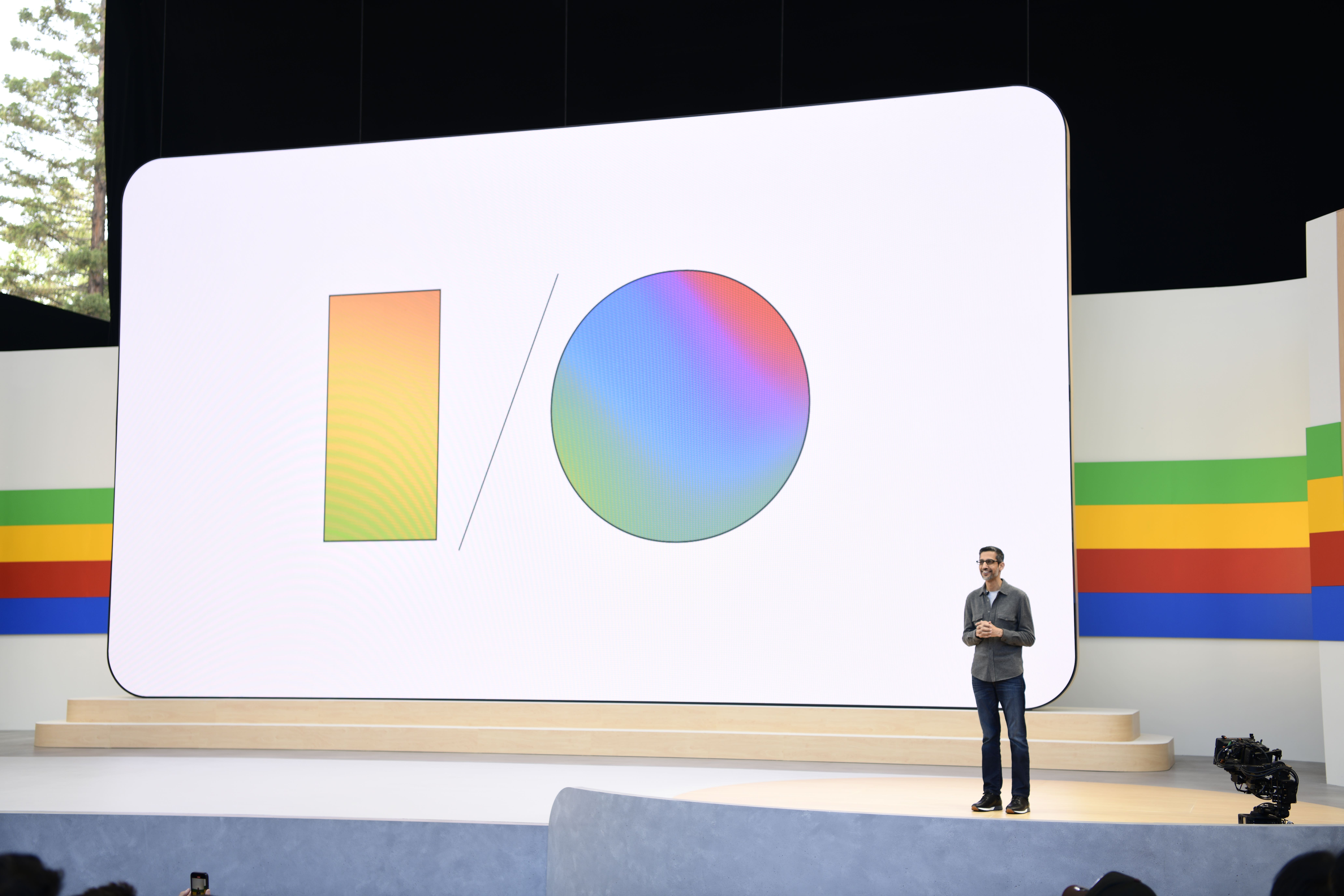Google rebuilds search engine around AI and unveils new image and video tools
The tech giant is holding its annual developer conference, Google I/O, in California.

Google has unveiled an array of new AI-powered products, including new video and image creation tools, as well as starting to rebuild its search engine around generative AI, powered by the firm’s Gemini AI model.
The technology giant used the opening of its annual developer conference, Google I/O, to also preview Project Astra, which Google calls the “future of AI assistants”, which could see, understand and respond to the world around it through a smartphone camera or smart glasses.
Demonstrated on-stage by British founder of Google-owned AI firm DeepMind, Sir Demis Hassabis, the so-called AI agent was able to identify objects it saw as someone scanned an office space with a phone camera, suggest creative ideas based on what it saw on a computer screen and remind a user where their glasses were on a desk.
Sir Demis said the aim was to create a “universal AI agent” that was “helpful in every day life” by being able to “take in and understand what it sees and respond”.
Elsewhere, Google confirmed it was expanding a test it had run in the UK to bring generative AI responses and suggestions to search results, and would now roll out the tool broadly in the US, saying it would use AI to “take more of the legwork out of searching”.
The tool would also be able to break down longer, multi-part queries and show all the different parts in one search result, and confirmed it would soon enable people to submit search queries using a video.
The company said it was the start of a “new era for search”, powered by generative AI, with chief executive Sundar Pichai calling it the “most exciting era of search yet”.
The company also announced it was launching a new video creation tool called Veo, which would turn text prompts into longer-form videos, as well as Imagen 3, an AI image creator which also responded to text prompts.
As part of its creative tools development, Google said it was working with musicians including Wyclef Jean and songwriter Justin Tranter, who had created new music with help from Google’s Music AI Sandbox to create new sounds, as well as with filmmaker Donald Glover who had been using the firm’s text-to-video AI tools.
The new creation tools come amid ongoing concerns around AI-generated content, particularly deepfake images and videos which have been used to spread misinformation.
In a blog post around the new tools, Google said: “We’re mindful about not only advancing the state of the art, but doing so responsibly. So we’re taking measures to address the challenges raised by generative technologies and helping enable people and organisations to responsibly work with AI-generated content.
We’ve been conducting safety tests, applying filters, setting guardrails, and putting our safety teams at the centre of development
“For each of these technologies, we’ve been working with the creative community and other external stakeholders, gathering insights and listening to feedback to help us improve and deploy our technologies in safe and responsible ways.
“We’ve been conducting safety tests, applying filters, setting guardrails, and putting our safety teams at the centre of development.
“Our teams are also pioneering tools, such as SynthID, which can embed imperceptible digital watermarks into AI-generated images, audio, text and video. And starting today, all videos generated by Veo on VideoFX will be watermarked by SynthID.
“The creative potential for generative AI is immense and we can’t wait to see how people around the world will bring their ideas to life with our new models and tools.”
The conference keynote also saw updates to the tech giant’s flagship Gemini AI model, including a “lightweight” model called 1.5 Flash, and made improvements to its 1.5 Pro model, which Google said could now “follow increasingly complex and nuanced instructions” and understand context for a longer conversation window.
Mr Pichai described the developer conference as “Google’s version of (Taylor Swift’s) Eras tour”, adding that the tech giant was in its “Gemini era”.
Mr Pichai showcased a number of new ways Google was integrating Gemini into its popular apps, including a new Ask Photos tool for the Google Photos app, which used text prompts from users to find specific images or create photo collections, or asking Gemini to create a summary of all recent emails from a specific sender or on a topic if a user needed to catch up.
The announcements come as a new wave of innovation is expected around generative AI, particularly from the world’s biggest tech firms.
On Monday, ChatGPT maker OpenAI unveiled updates it was making to the popular chatbot, including making the assistant more able to understand a mixture of text, audio and visuals inputs, and have more human-like conversations.
Microsoft has its own developer conference next week and Apple’s follows in early June, with both also expected to heavily focus on their development and integration of generative AI tools.
It comes as questions and concerns remain around how to best regulate the rapidly evolving technology, with governments around the world debating how best to regulate the emerging market as critics warn they risk falling behind because of the pace of change within the sector.
Bookmark popover
Removed from bookmarks